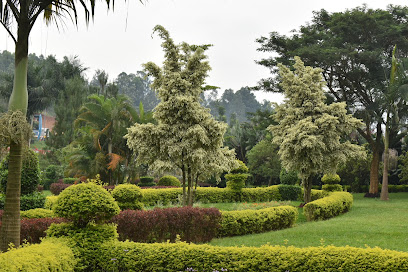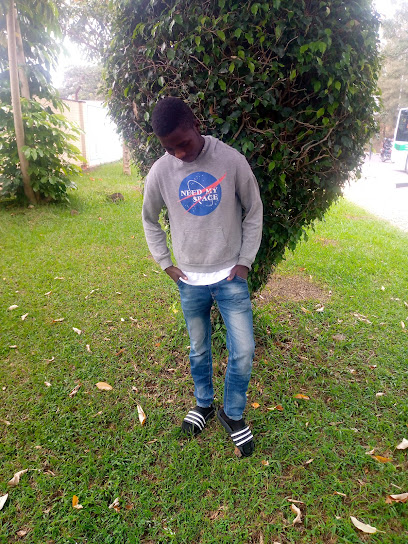
Kacyiru: Kigali's Hub of Culture and Governance
Kacyiru is one of Kigali's most vibrant and dynamic neighbourhoods, known for its unique blend of culture, governance, and modernity. Situated in the heart of Rwanda's capital city, Kacyiru offers an inviting mix of attractions that cater to a wide range of interests. Here, you can explore the rich history and culture of Rwanda through its museums, enjoy the lush greenery of its parks, or delve into the bustling local markets. One of the key highlights of Kacyiru is the presence of several significant government buildings, including the Presidential Palace and various embassies. This lends the neighbourhood an air of importance and security, making it one of the safest areas in Kigali. Additionally, the Kigali Genocide Memorial, located in Kacyiru, offers a poignant and educational experience, providing insight into Rwanda’s past and its journey towards peace and reconciliation. For those looking to unwind, Kacyiru boasts a variety of restaurants, cafes, and bars that offer both local and international cuisine. The neighbourhood is also home to the Kigali Public Library, a perfect spot for book lovers and those looking to catch up on some reading. With its well-maintained roads and easy access to public transport, getting around Kacyiru is a breeze, making it an ideal base for exploring the rest of Kigali.
Local tips in Kacyiru
- Visit the Kigali Genocide Memorial early in the morning to avoid crowds and have a more reflective experience.
- Take a stroll through the lush gardens of the Presidential Palace Museum for a tranquil escape.
- Try local Rwandan dishes at nearby restaurants for an authentic culinary experience.
- Use public transport or local taxis for convenient and affordable travel around the neighbourhood.
- Stop by the Kigali Public Library for a peaceful reading session or to use the free Wi-Fi.
Kacyiru: Kigali's Hub of Culture and Governance
Kacyiru is one of Kigali's most vibrant and dynamic neighbourhoods, known for its unique blend of culture, governance, and modernity. Situated in the heart of Rwanda's capital city, Kacyiru offers an inviting mix of attractions that cater to a wide range of interests. Here, you can explore the rich history and culture of Rwanda through its museums, enjoy the lush greenery of its parks, or delve into the bustling local markets. One of the key highlights of Kacyiru is the presence of several significant government buildings, including the Presidential Palace and various embassies. This lends the neighbourhood an air of importance and security, making it one of the safest areas in Kigali. Additionally, the Kigali Genocide Memorial, located in Kacyiru, offers a poignant and educational experience, providing insight into Rwanda’s past and its journey towards peace and reconciliation. For those looking to unwind, Kacyiru boasts a variety of restaurants, cafes, and bars that offer both local and international cuisine. The neighbourhood is also home to the Kigali Public Library, a perfect spot for book lovers and those looking to catch up on some reading. With its well-maintained roads and easy access to public transport, getting around Kacyiru is a breeze, making it an ideal base for exploring the rest of Kigali.
Iconic landmarks you can’t miss
Kigali Genocide Memorial
Explore the poignant Kigali Genocide Memorial, where history, remembrance, and a message of reconciliation come together in a powerful tribute.
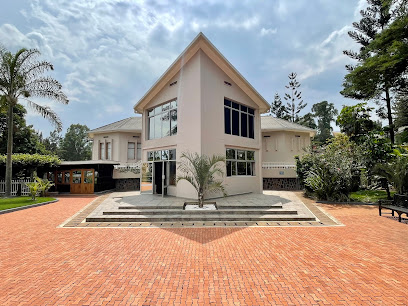
Inema Arts Centre
Explore the vibrant Rwandan art scene at Inema Arts Centre, a dynamic hub of creativity featuring contemporary art, workshops, and local artists.
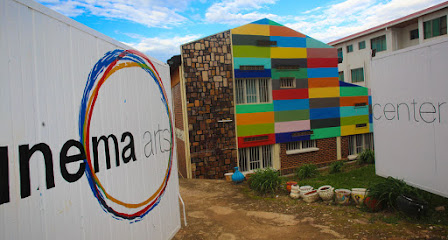
Belgian Peacekeepers Memorial
Explore the Belgian Peacekeepers Memorial in Kigali, a moving tribute to bravery and sacrifice during the Rwandan Genocide, honoring peacekeepers' legacy.
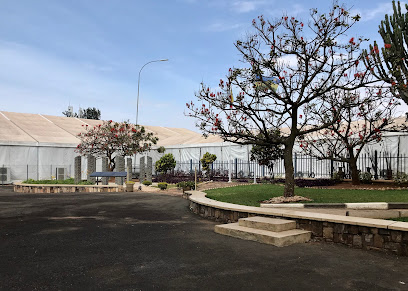
Niyo Arts Gallery
Explore the vibrant artistry of Rwanda at Niyo Arts Gallery, where culture, creativity, and community come together in the heart of Kigali.
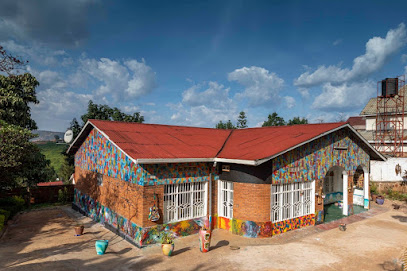
Sunday Park
Discover the natural beauty and cultural charm of Sunday Park in Kigali, a perfect venue for outdoor weddings, picnics, and adventurous activities.
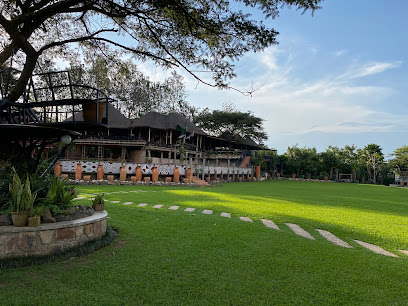
Cultural Green square Park
Experience the serene beauty and vibrant culture of Kigali at the Cultural Green Square Park, a perfect escape for tourists and locals alike.
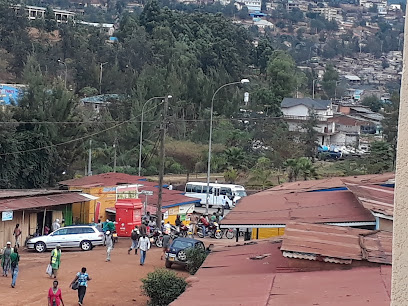
Ivuka Arts
Explore Ivuka Arts in Kigali, a vibrant hub for local creativity and culture, showcasing stunning artworks and engaging with talented artists.
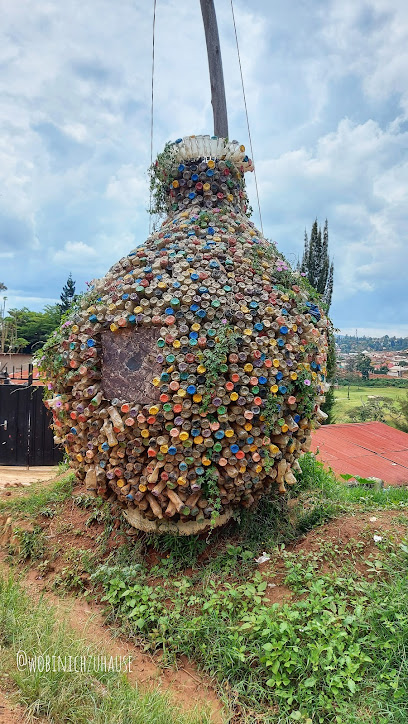
Gorilla Statue
Explore Kigali's cultural heart at the iconic Gorilla Statue, a tribute to wildlife conservation and a symbol of Rwanda's rich heritage.
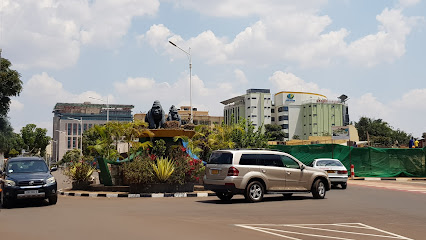
Kiyovu town roundabout
Experience the vibrant culture and energy of Kigali at Kiyovu Town Roundabout, a bustling hub of local life and unique attractions.
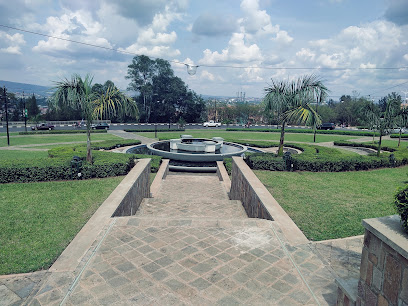
Kigali City Main Roundabout ( Centre ville Rond point )
Discover the vibrant heart of Kigali at the Main Roundabout, where history, culture, and modern life converge in the capital of Rwanda.
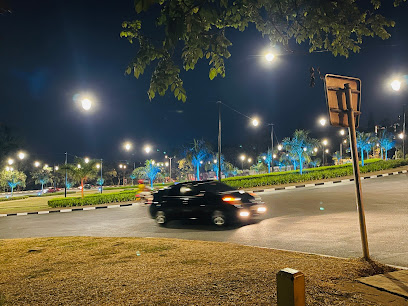
Unmissable attractions to see
Essential places to dine
Kurry Kingdom
Experience the rich flavors of India at Kurry Kingdom in Kigali - where tradition meets modern culinary artistry.
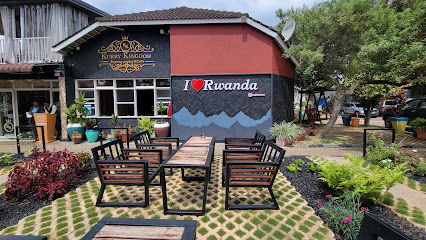
Soy Asian Table
Discover authentic Southeast Asian flavors at Soy Asian Table in Kigali – where culinary excellence meets cultural richness.
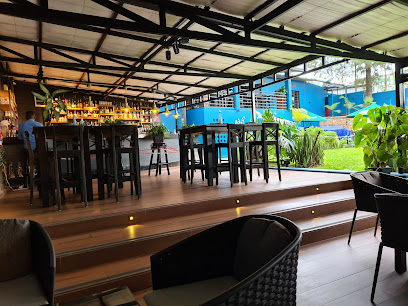
Casa Keza
Experience authentic Spanish cuisine in Kigali at Casa Keza – where every dish tells a story.
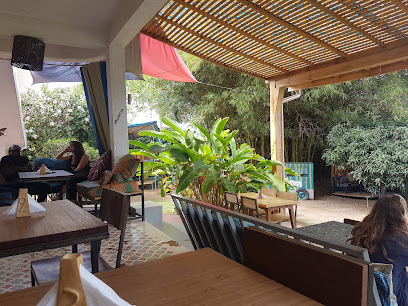
Poivre Noir
Discover Kigali's culinary gem at Poivre Noir – where Rwandan flavors meet international excellence in an elegant setting.
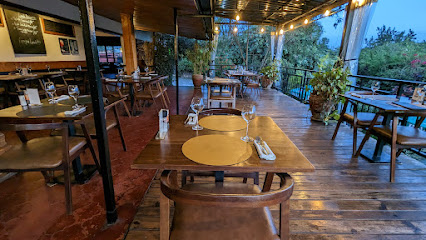
Burrows Bar & Restaurant
Experience authentic Rwandan flavors and international cuisine at Burrows Bar & Restaurant in the heart of Kigali.
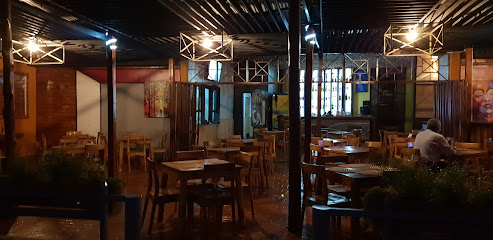
Kabana Club Restaurant
Discover Kabana Club Restaurant in Kigali - where vibrant flavors meet lively ambiance for an unforgettable dining experience.
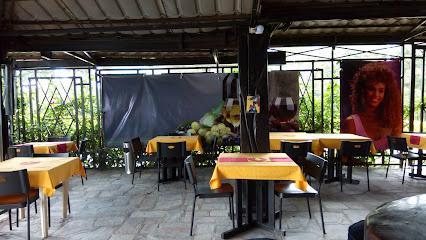
Greek Taverna
Savor authentic Greek dishes in Kigali at Greek Taverna—where Mediterranean flavors meet warm hospitality.
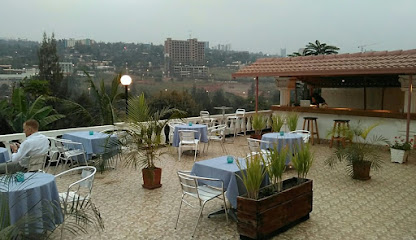
Brachetto Restaurant
Discover the flavors of Rwanda at Brachetto Restaurant - where culinary excellence meets warm hospitality in the heart of Kigali.
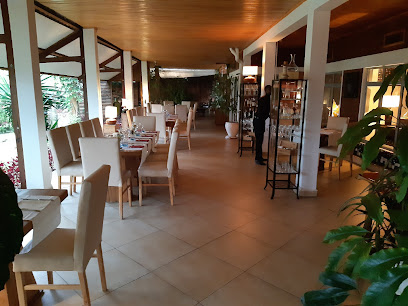
Kōzo Kigali Restaurant
Discover an exquisite blend of Rwandan and international cuisine at Kōzo Kigali Restaurant in the heart of Kigali.
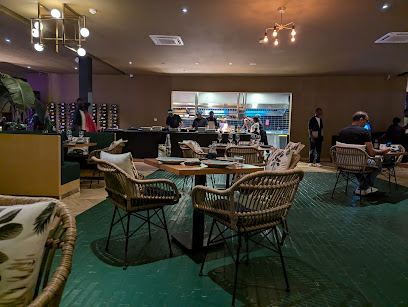
Le Petit Chalet
Discover the authentic taste of Rwanda at Le Petit Chalet, where local flavors meet warm hospitality in Kigali's charming setting.
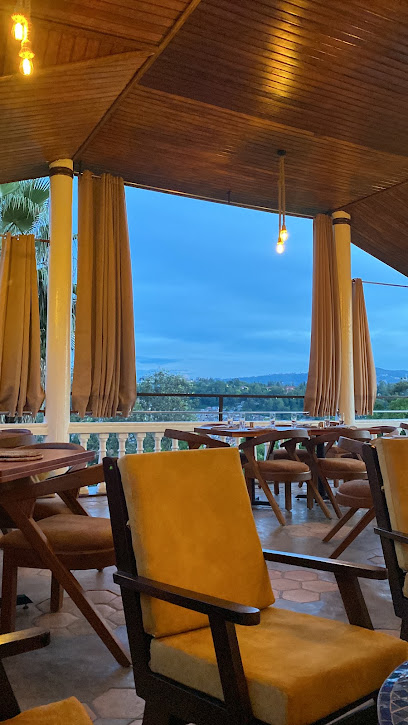
Markets, malls and hidden boutiques
Kigali Pottery Collections, New store Kacyiru
Explore the vibrant world of handcrafted pottery at Kigali Pottery Collections, celebrating Rwandan culture and artistry through unique pieces.
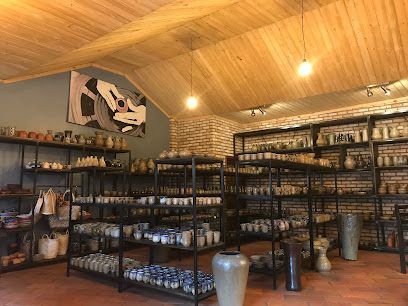
Tic-Tac-Toe (Gift Shop)
Explore the vibrant Tic-Tac-Toe Gift Shop in Kigali for unique souvenirs, local crafts, and an unforgettable shopping experience.
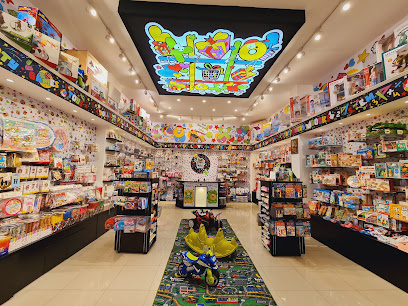
The Shop
Explore the vibrant gift shop in Kigali, offering handcrafted treasures and authentic Rwandan souvenirs for an unforgettable shopping experience.
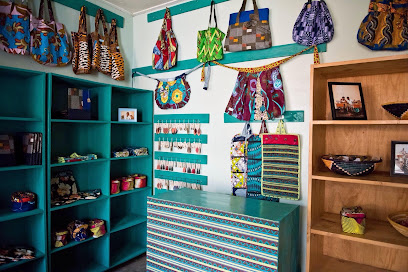
Ikaze Showroom
Explore Ikaze Showroom in Kigali for authentic Rwandan crafts and goods, reflecting the rich culture and artistry of Africa.
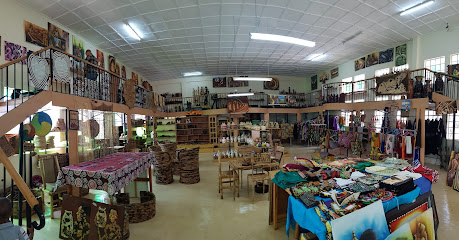
n'Intoki
Explore n'Intoki in Kigali for exquisite handcrafted handbags and leather goods, embodying Rwanda’s rich artistic heritage and style.
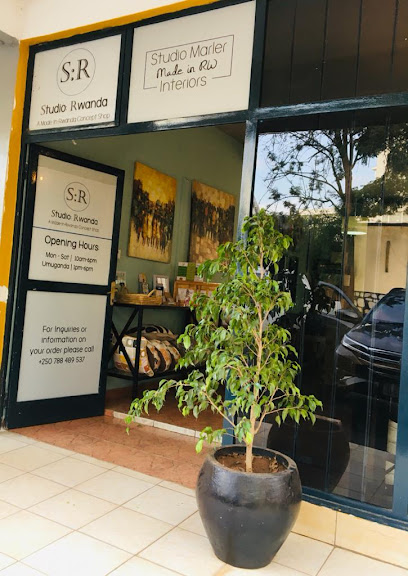
Creation hodel
Explore Creation Hodel in Kigali - a haven for authentic Rwandan crafts and unique handmade treasures.
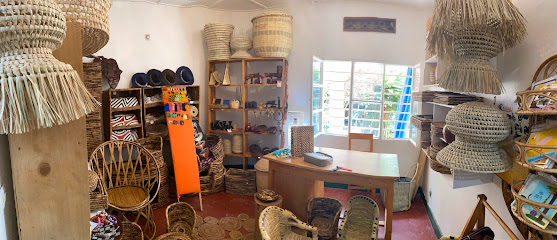
Akeza Shop
Explore Akeza Shop in Kigali for authentic Rwandan gifts, showcasing local craftsmanship and unique souvenirs that capture the essence of Rwanda.
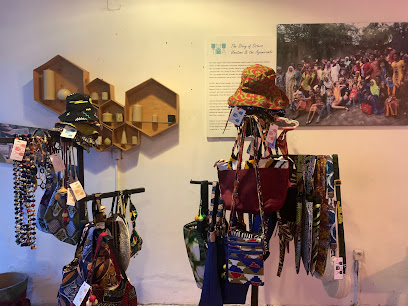
SHOPPING FUN
Discover a shopper's paradise at Shopping Fun, where unique finds and delightful experiences await every visitor.

Iraba_artisans
Explore Iraba Artisans, a vibrant craft store in Kigali showcasing the rich artistry and creativity of Rwandan artisans through unique handmade crafts.
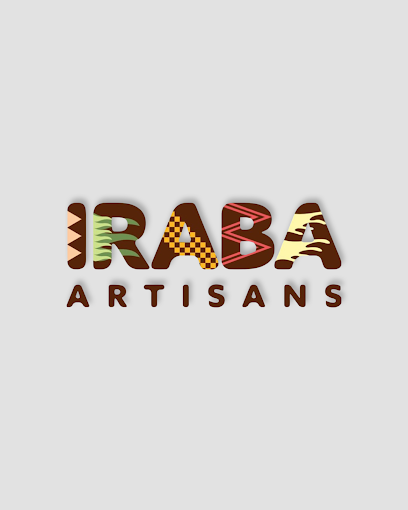
Urutozi Gakondo
Explore the vibrant world of fashion accessories at Urutozi Gakondo in Kigali, where unique Rwandan artistry meets contemporary style.

Essential bars & hidden hideouts
Chillax Lounge
Experience the vibrant nightlife at Chillax Lounge in Kigali, where stylish decor and an extensive drink menu create the perfect atmosphere for relaxation and fun.
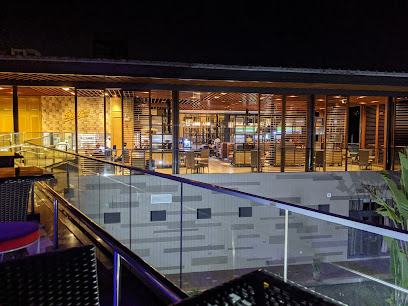
Burrows Bar & Restaurant
Experience Kigali's vibrant culinary scene at Burrows Bar & Restaurant, where authentic local flavors meet warm hospitality.
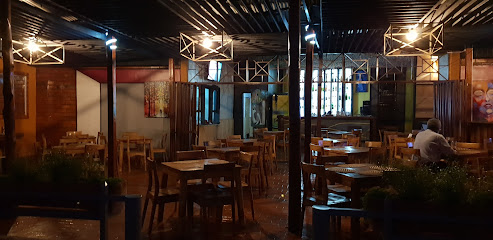
Kabana Club Restaurant
Experience the vibrant flavors of Kigali at Kabana Club Restaurant, a top grill destination for both locals and tourists.
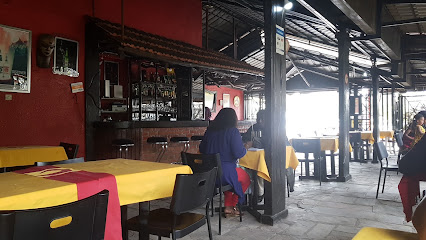
NEW KIMI’S BAR
Discover the lively ambiance and diverse drink selection at New Kimi’s Bar, a must-visit hotspot in Kigali's nightlife scene.
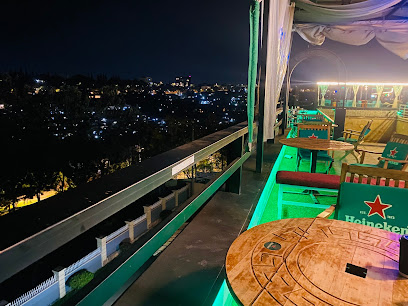
The Link Bar & Restaurant
Discover Kigali's vibrant nightlife and culinary delights at The Link Bar & Restaurant, where local flavors meet social atmosphere.
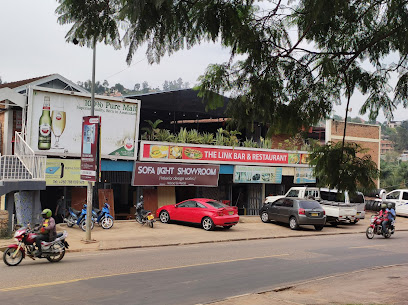
Georgies
Discover Georgies: A lively bar in Kigali offering local drinks, vibrant atmosphere, and a taste of Rwanda's nightlife.
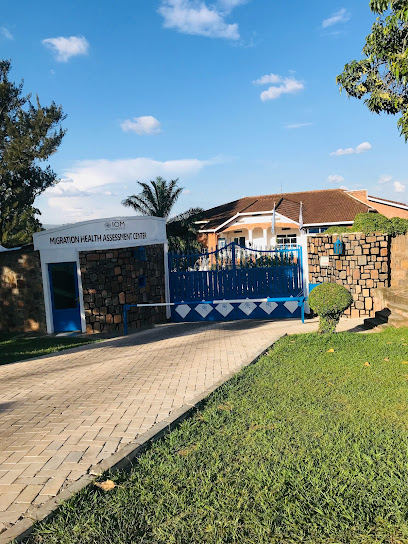
Chez Kimenyi
Experience the vibrant nightlife of Kigali at Chez Kimenyi, a lively bar that serves a mix of local and international drinks in a welcoming atmosphere.
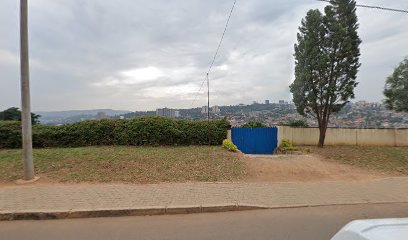
Isla Tiki Bar
Experience the best of Kigali's nightlife at Isla Tiki Bar, where tropical cocktails and gourmet hot dogs create the perfect blend for an unforgettable night.
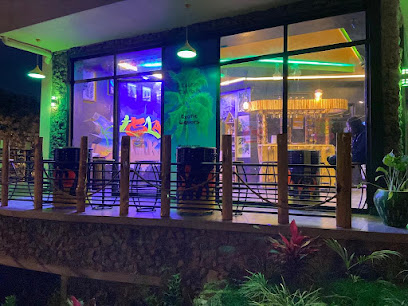
Mama Sukari Bar And Refreshment
Discover the lively atmosphere of Mama Sukari Bar And Refreshment in Kigali, where locals and visitors gather for delightful drinks and good company.
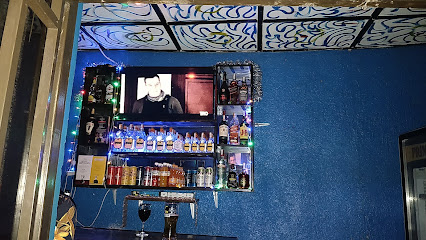
JULIETTE Bar Restaurant
Discover the lively ambiance of JULIETTE Bar Restaurant in Kigali, where local flavors and refreshing drinks await in a vibrant setting.
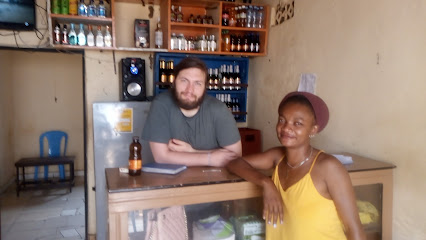
Local Phrases
-
- HelloMuraho
[moo-rah-hoh] - GoodbyeMurabeho
[moo-rah-beh-hoh] - YesYego
[yeh-goh] - NoOya
[oh-yah] - Please/You're welcomeNgiyubake
[ng-ee-yoo-bah-kay] - Thank youMurakoze
[moo-rah-koh-zay] - Excuse me/SorryNdasaba
[ndah-sah-bah] - How are you?Amakuru?
[ah-mah-koo-roo] - Fine. And you?Murungi. Wewe?
[moo-roon-gee. way-way] - Do you speak English?Wibaza ikinyarwanda?
[wee-bah-zah ee-keen-yah-rwan-dah] - I don't understandNtashoboye kubivuga
[ntah-shoh-boy koo-bee-voo-gah]
- HelloMuraho
-
- I'd like to see the menu, pleaseNifuza kumenya ijambo, cyane
[nee-foo-zah koo-may-nyah ee-jahm-bo, ch-yah-nay] - I don't eat meatSiye ntagira inyama
[see-yay en-tah-gee-rah ee-nyah-mah] - Cheers!Mwaramutse!
[mwah-rah-moo-tsay] - I would like to pay, pleaseNifuza kugura, cyane
[nee-foo-zah koo-goo-rah, ch-yah-nay]
- I'd like to see the menu, pleaseNifuza kumenya ijambo, cyane
-
- Help!Ubutware!
[oo-boo-twar-ay] - Go away!Jya hano!
[j-yah hah-no] - Call the Police!Sibyuma Polisi!
[see-byoo-mah poh-lee-see] - Call a doctor!Sibyuma dokotela!
[see-byoo-mah doh-koh-tay-lah] - I'm lostNdasaba
[ndah-sah-bah] - I'm illNdasaba
[ndah-sah-bah]
- Help!Ubutware!
-
- I'd like to buy...Nifuza kugura...
[nee-foo-zah koo-goo-rah] - I'm just lookingNifuza kureba
[nee-foo-zah koo-ray-bah] - How much is it?Ni iki cyane?
[nee ee-kee ch-yah-nay] - That's too expensiveIbyo ni byinshi cyane
[ee-byoh nee bee-nee-shee ch-yah-nay] - Can you lower the price?Ukeneye gukomeza igiciro?
[oo-kay-nay guh-koh-may-zah ee-gee-chee-ro]
- I'd like to buy...Nifuza kugura...
-
- What time is it?Saa ngapi?
[sahh ngah-pee] - It's one o'clockNi saa munani
[nee sahh moo-nah-nee] - Half past (10)I saa munani n'igice
[ee sahh moo-nah-nee nee-gee-chay] - MorningUmugoroba
[oo-moo-goh-roh-bah] - AfternoonUmusi
[oo-moo-see] - EveningIgihe cy'ubutumwa
[ee-gee-hay ch-yoo-boo-too-mwah] - YesterdayEjo
[eh-joh] - TodayEjo
[eh-joh] - TomorrowEjo
[eh-joh] - 1Rimwe
[ree-mweh] - 2Kabiri
[kah-bee-ree] - 3Gatatu
[gah-tah-too] - 4Kane
[kah-nay] - 5Gatanu
[gah-tah-noo] - 6Gatandatu
[gah-tahn-dah-too] - 7Kagatandatu
[kah-gah-tahn-dah-too] - 8Kagatano
[kah-gah-tah-noh] - 9Icyenda
[ee-ch-yen-dah] - 10Icyumuntu
[ee-ch-yoo-moon-too]
- What time is it?Saa ngapi?
-
- Where's a/the...?Ibyo bihabwa he?
[ee-byoh bee-hah-bwah hay] - What's the address?Adiresi ni iki?
[ah-dee-reh-see nee ee-kee] - Can you show me (on the map)?Ukeneye kunyereka (muri imwe)
[oo-kay-nay koo-nyeh-ray-kah moo-ree eem-way] - When's the next (bus)?Iki kiganiro cyane?
[ee-kee kee-gah-nee-ro ch-yah-nay] - A ticket (to ....)Igitike (kuri ....)
[ee-gee-tee-kay koo-ree]
- Where's a/the...?Ibyo bihabwa he?
History of Kacyiru
-
Kacyiru, like much of Rwanda, was historically governed by a system of chieftaincy, where local leaders played crucial roles in the social and political organization of the community. The area was characterized by its traditional practices, with a strong emphasis on agriculture and livestock rearing, reflecting the broader Rwandan culture.
-
During the late 19th and early 20th centuries, Kacyiru began to develop under colonial rule, particularly after the establishment of Belgian control over Rwanda. The colonial administration initiated urban planning efforts, leading to the establishment of infrastructure that would shape modern Kigali. Kacyiru became a focal point for administrative and military activities.
-
Kacyiru was significantly impacted during the genocide in 1994, where countless Tutsi were targeted and killed. The neighborhood's churches and schools became sites of refuge, but also places of tragedy. The aftermath of the genocide left deep scars on the community, influencing its cultural and social dynamics in the years that followed.
-
In the years following the genocide, Kacyiru played a vital role in Rwanda's reconciliation and rebuilding efforts. Community initiatives focused on healing and unity emerged, fostering a culture of forgiveness. The establishment of memorial sites in and around Kacyiru serves as a reminder of the past while promoting peace and understanding among its residents.
-
Today, Kacyiru is recognized as an important diplomatic and cultural center in Kigali. The neighborhood hosts several embassies, international organizations, and cultural institutions. Sites like the Kigali Genocide Memorial and the Kigali Public Library reflect the neighborhood's commitment to education, remembrance, and fostering a vibrant community spirit.
Kacyiru Essentials
-
Kacyiru is conveniently located in Kigali and can be accessed from various neighborhoods via public transport or taxis. From the city center, you can take a taxi or a motorcycle taxi (moto) to Kacyiru, which typically takes around 15-20 minutes, depending on traffic. Buses also operate routes to Kacyiru, with several stops throughout the neighborhood, making it accessible from places like Nyamirambo and Kimihurura.
-
Kacyiru is a walkable neighborhood, with many attractions within close proximity. For longer distances, you can use public buses or motorcycle taxis, which are a popular and efficient way to navigate the city. Although there are no formal train services in Kigali, the bus system is reliable. Bicycles can be rented at several locations, providing a leisurely way to explore the area.
-
Kacyiru is generally safe for tourists, but standard precautions should be observed. Avoid walking alone at night, especially in less populated areas. While violent crime is rare, petty theft can occur, particularly in crowded markets or public transport. Be cautious in areas like Nyamirambo, which has a higher rate of petty crime. Always keep your belongings secure and stay vigilant.
-
In case of emergency, dial 112 for police assistance or 121 for medical emergencies. Familiarize yourself with the location of the nearest hospital; King Faisal Hospital is a well-known facility in Kacyiru. It is advisable to have travel insurance that covers emergencies. For minor health issues, local pharmacies can provide over-the-counter medications.
-
Fashion: Do dress modestly, especially in public spaces and when visiting government buildings. Avoid overly revealing clothing. Religion: Do respect local customs and traditions; it’s advisable to remove your shoes when entering homes. Public Transport: Do offer your seat to the elderly or pregnant women. Don't engage in loud conversations on public transport. Greetings: Do greet people with a handshake and a smile; it's polite to inquire about their well-being. Eating & Drinking: Do try local Rwandan dishes and accept food offered to you. Don't eat in public while walking, as this is considered disrespectful.
-
To experience Kacyiru like a local, visit local cafes and restaurants where you can enjoy traditional Rwandan cuisine, such as Ugali and Isombe. Engage with local artisans and shop at markets for unique handicrafts. Attend community events or festivals to immerse yourself in Rwandan culture. Additionally, explore the Kacyiru neighborhood on foot to appreciate its vibrant streets and public art.
Nearby Cities to Kacyiru
-
Things To Do in Nyamata
-
Things To Do in Muhanga
-
Things To Do in Ruhengeri
-
Things To Do in Kirundo
-
Things To Do in Karongi
-
Things To Do in Nyagatare
-
Things To Do in Kibuye
-
Things To Do in Butare
-
Things To Do in Rubavu
-
Things To Do in Gisenyi
-
Things To Do in Muyinga
-
Things To Do in Ngozi
-
Things To Do in Kayanza
-
Things To Do in Cibitoke
-
Things To Do in Muramvya








